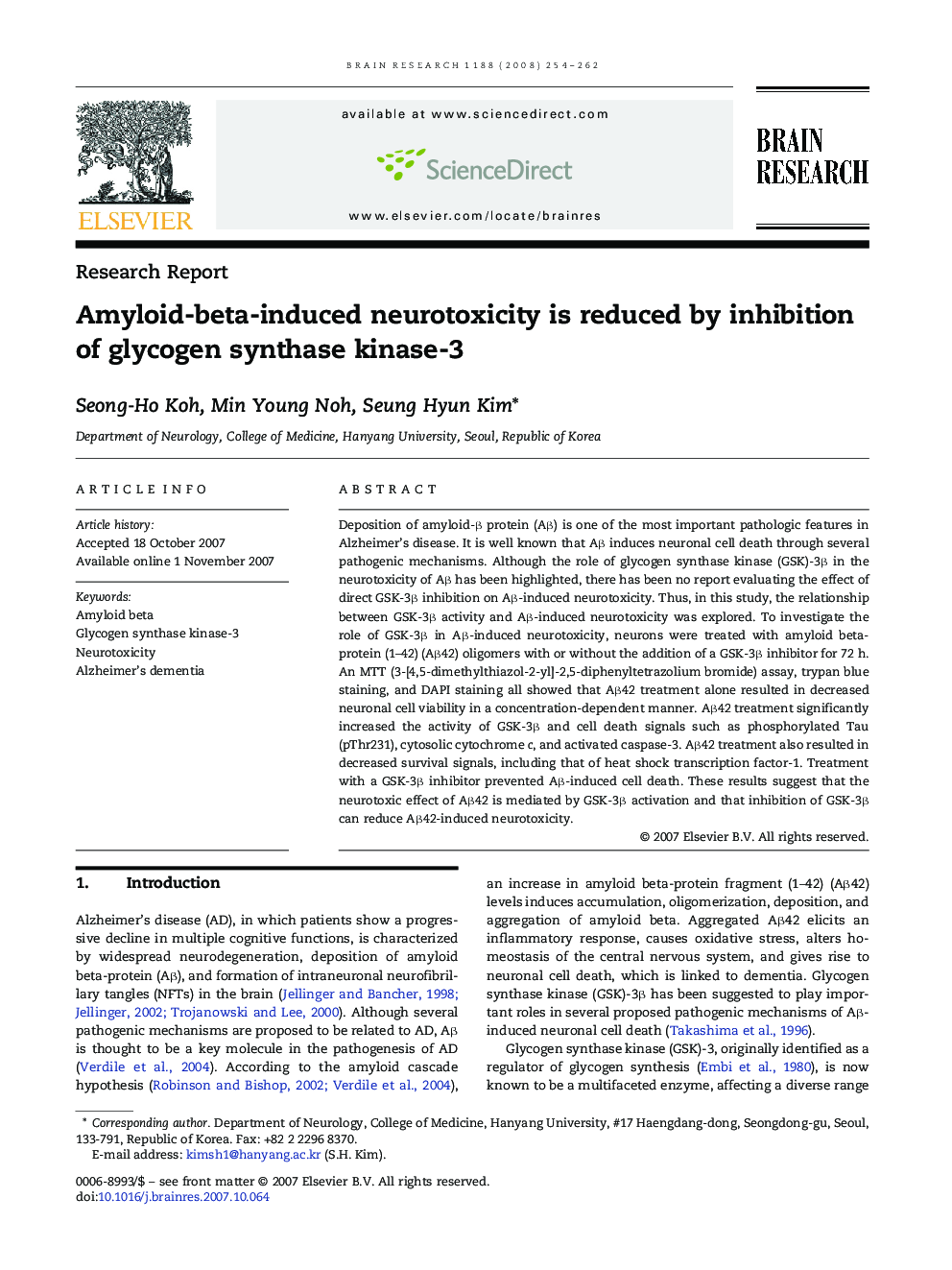| Article ID | Journal | Published Year | Pages | File Type |
|---|---|---|---|---|
| 4330325 | Brain Research | 2008 | 9 Pages |
Deposition of amyloid-β protein (Aβ) is one of the most important pathologic features in Alzheimer's disease. It is well known that Aβ induces neuronal cell death through several pathogenic mechanisms. Although the role of glycogen synthase kinase (GSK)-3β in the neurotoxicity of Aβ has been highlighted, there has been no report evaluating the effect of direct GSK-3β inhibition on Aβ-induced neurotoxicity. Thus, in this study, the relationship between GSK-3β activity and Aβ-induced neurotoxicity was explored. To investigate the role of GSK-3β in Aβ-induced neurotoxicity, neurons were treated with amyloid beta-protein (1–42) (Aβ42) oligomers with or without the addition of a GSK-3β inhibitor for 72 h. An MTT (3-[4,5-dimethylthiazol-2-yl]-2,5-diphenyltetrazolium bromide) assay, trypan blue staining, and DAPI staining all showed that Aβ42 treatment alone resulted in decreased neuronal cell viability in a concentration-dependent manner. Aβ42 treatment significantly increased the activity of GSK-3β and cell death signals such as phosphorylated Tau (pThr231), cytosolic cytochrome c, and activated caspase-3. Aβ42 treatment also resulted in decreased survival signals, including that of heat shock transcription factor-1. Treatment with a GSK-3β inhibitor prevented Aβ-induced cell death. These results suggest that the neurotoxic effect of Aβ42 is mediated by GSK-3β activation and that inhibition of GSK-3β can reduce Aβ42-induced neurotoxicity.
